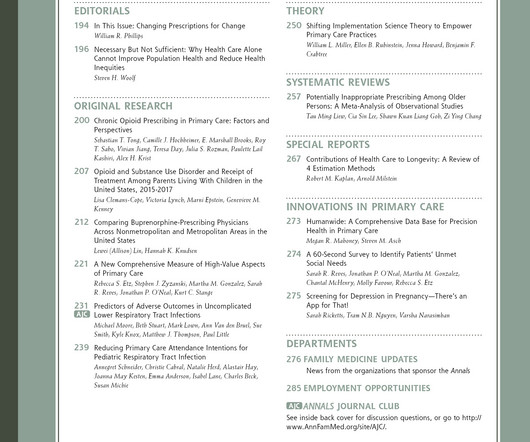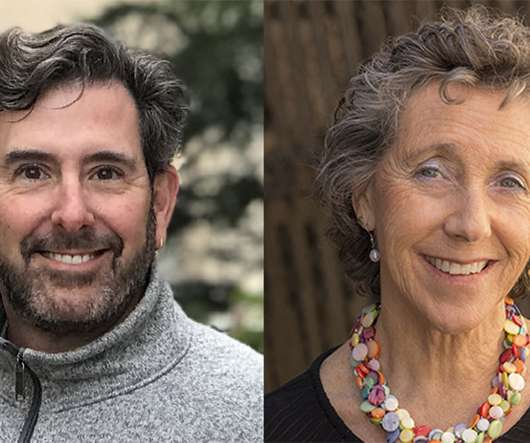Effects of the COVID-19 pandemic on primary care for diabetes in Canada: Results from a mixed-methods study [Health care services, delivery, and financing]
Annals of Family Medicine
NOVEMBER 20, 2024
Setting & Dataset: The CPCSSN database contains de-identified patient-level electronic medical record data from 13 primary care research networks across Canada. Population Studied: Using CPCSSN data, we defined a cohort of patients aged 50-105 with diabetes diagnosed before the pre-pandemic period.



















Let's personalize your content